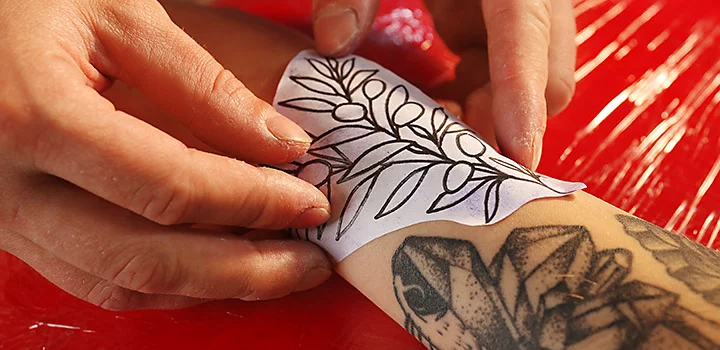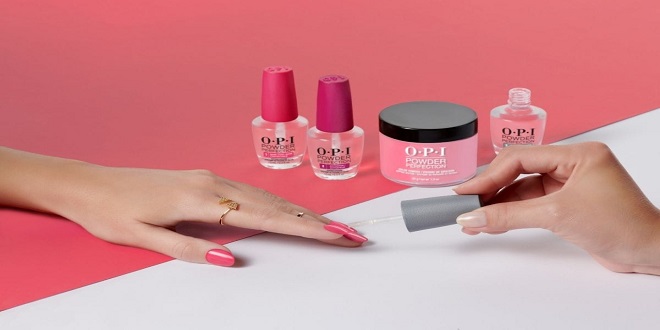
It can be difficult to recognize that you have herpes. However, it is comforting to know that others are suffering from the same condition. Herpes is a common condition that affects approximately 491,000,000 people between the ages of 15 and 49.
There is no cure for herpes. If you have oral herpes you need to apply a cream or ointment immediately. If you have genital herpes, you should use the best available over-the-counter treatments. Herpes medication is designed to control, reduce, and even eliminate the severity of outbreaks.
You may be curious about how long an outbreak lasts if you’ve never experienced one before. This is a legitimate concern, given the stigma surrounding this disease. There is good news: there is some hope for anyone who has ever been affected by a herpes epidemic. This article will discuss how long a herpes epidemic can last and what you can do to stop it.
What is Herpes?
Herpes can cause painful, tiny blisters around the rectal or vaginal areas. Both men and women can get herpes from each other. Vaginal, oral, and anal herpes can spread from one another. It can also be spread by direct contact with infected areas or sharing of contaminated personal belongings.
How long do herpes outbreaks last?
People associate “herpes” as a sore on the lip that occurs when you have a cold. But herpes can be a bit more complicated than that. Most herpes sufferers don’t know what they are doing. Because the infection may be totally symptomatic.
Learn more about the different types of herpes to find out how long they can last. Below are details about the differences between oral and genital herpes and how each one lasts.
1. HSV-1 and Oral Herpes
Childhood is the best time to get oral herpes. It’s not caused by sexual contact. It is similar to a cold, but the symptoms are more severe. If it’s severe, symptoms may include fever, swelling of the gums and enlarged lymph nodes.
If you are wondering if a herpes epidemic can last forever, here’s the answer. Although herpes outbreaks usually end within 2 to 3 weeks of onset, the healing process can take up to 6 weeks.
1. HSV-1 goes through multiple stages:
Stage 1 HSV-1 will cause reddening of the skin and lips. After 1 to 2 days, the area can become itchy, painful, and irritating.
Stage 2 A region that is affected by the virus expands and becomes inflamed.
Stage 3 – Cold sores or blisters, which are red, white or clear in color, begin to develop. These are touch-sensitive or painful sores that appear in clusters and last for approximately 2 days.
Stage 4 Lesions can burst after 1 to 2 day, releasing fluid and becoming worse. It usually takes around a day for this to happen.
Stage 5 As blisters heal, a crust can form over the blisters and become a scab. New skin will develop in 2 to 3 days.
Stage 6 The scab covering the blister will start to heal. You should wait until the incision has healed completely before you peel the scab.
Herpes can take months to disappear in extreme cases (e.g., those with weak immune systems). Herpes does not disappear. Even if there are no outbreaks, the virus is still present in your body.
However, the virus can still escape and cause a sore or a cold sore. Recurrent outbreaks can last from one to two weeks. This is if you include the tingling, burning sensation that develops before an outbreak occurs. However, triggers can vary. These outbreaks can often last seven days without treatment.
Recurring infections last for less time than the original infection. Even if you’re not symptomatic, the virus can be passed to your partner. It is important to know the symptoms immediately an outbreak occurs so that you can be tested and treated.
2. HSV-2 and Genital Herpes
One outbreak of genital herpes may last longer than others. Fever and other symptoms can occur, some lasting for several weeks. When these symptoms occur, it is called your first herpes outbreak. Incubating the first herpes on your vagina takes between and 12 days.
You will experience different stages of the genital herpes just like oral herpes.
Stage 1 – Prodrome is the most contagious stage. HSV-2 activation can cause pain, tingling or itching.
Stage 2 This stage lasts from 1 to 4 days.
Stage 3 – Sores and lesions will appear around the infected areas and last for up to six days. They may swell and become excruciatingly painful.
Stage 4 The lesions or sores will grow and eventually explode, releasing any fluid. Opened sores may remain open for up to four days.
Stage 5 After the fluid has been drained, the sores will dry and scab for several days.
Stage 6 The wounds will heal when the scabs are removed. In other situations, there won’t be any scabs. Your lesions will disappear. This stage of genital herpes can take anywhere from 3 to 7 days.
Asymptomatic genital herpes infections can also occur, just like oral herpes. Symptoms can be present at any time, but later infections are often less painful and more likely to heal quickly than the original infection.
It is becoming less common for people to have symptomatic breakouts over time. To receive the best treatment for genital herpes, you should see a doctor if you are experiencing a genital shepes outbreak.
Things to do if you’re experiencing a Herpes Outbreak
Herpes outbreaks can be treated on their own without the need for medical intervention. The right herpes medication can help to reduce and prevent recurrent outbreaks. These antiviral drugs prevent the virus from reproducing in your body.
There are many herpes treatment options available.
- Antivirals
- Immune Boosters
- Topical Treatments
- Supplements
Good hygiene habits can help prevent the spread of cold sores. This could help reduce the severity and duration of the outbreaks. It can be used during a herpes outbreak.
- Avoid touching sores, especially those that are still open.
- Use soap and water to wash your hands. Hand sanitizers and alcohol are options if water is scarce.
- You should be careful not to expose any other areas of your body, such as your eyes and genital area, to the virus.
- Use soap and water to gently clean the herpes sores.
- Don’t bandage open wounds. Your herpes outbreak will be treated faster if you use the air.
- Avoid picking at sores. They could become contaminated and delay healing.
- Use only ointments or lotions that have been prescribed by your healthcare practitioner.
- Get plenty of rest. Fatigue and stress can trigger the recurrence or recurrence a herpes infection. You can maintain a healthy immune system by getting enough sleep.
- Healthy eating habits can help maintain a healthy immune system.
To wrap it up
For long periods, the herpes virus could be dormant. It’s better to be safe than sorry when it comes to herpes. Although there is no cure for genital herpes at this time, it can be managed with good care. It is possible for outbreaks to occur, but it can be easier to prepare.
Remember that knowledge is power. A better understanding of herpes will help you to reduce anxiety. You should consult a doctor immediately if your symptoms are severe and you experience frequent outbreaks. To ensure that you get the right diagnosis, treatment should be started immediately.
Kidzmommy offers invaluable resources for modern parenting. From expert tips to practical advice, it’s a must-visit for parents. Embrace the journey with confidence and enjoy every moment. Stay informed, stay connected, and make parenting simpler with Kidzmommy. Explore more and enrich your parenting experience today!





